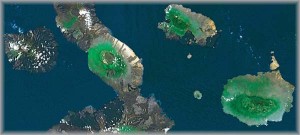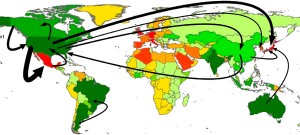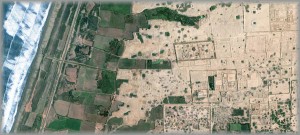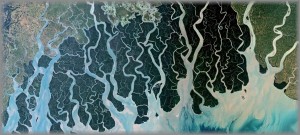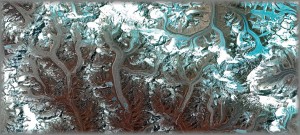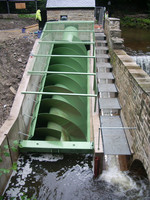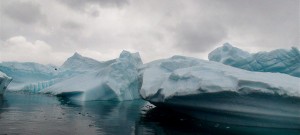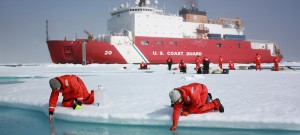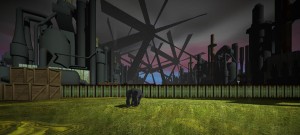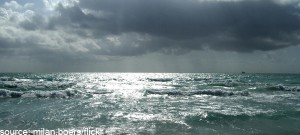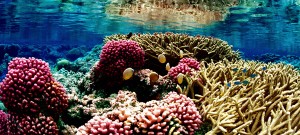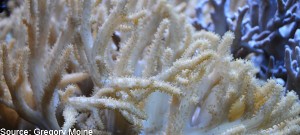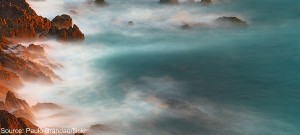Climate science
Nitrogen oxide levels over Europe drop 20%
New research has found a combination of improvement environmental policy and the economic recession caused Nitrogen oxide levels over Europe to drop 20-20% between 2005-10.
Satellite Image: Intensification of ENSO Effects in the Galapagos Islands
Produced as part of UNESCO’s international ‘Satellites and World Heritage Sites, Partners to Understand Climate Change’ exhibition, this image shows the ENSO effects in the Galapagos Islands.
Mapping water footprints across the globe
New research, mapping global flows of water consumption, aims to highlight the global approach needed when adapting sustainable national water footprints.
Satellite Image: Threatened Earth Structures in the Chan Chan Archaeological Zone
Produced as part of UNESCO’s international ‘Satellites and World Heritage Sites, Partners to Understand Climate Change’ exhibition, this image shows the threatened earth structures in the Chan Chan Archaeological Zone in Peru.
Satellite Photo: Destruction of the Mangrove Forest of the Sundarbans
Produced as part of UNESCO’s ‘Satellites and World Heritage Sites, Partners to Understand Climate Change’ exhibition, this satellite image shows the destruction of Mangroves in the Bay of Bengal.
Climate change could trigger more volcanic eruptions, warns scientist
Volcanic eruptions, earthquakes and tsunamis could all be consequences of worsening climate change, says volcanologist, Bill McGuire.
Satellite Photo: Shrinking Glaciers on Mount Everest
Produced as part of UNESCO’s international ‘Satellites and World Heritage Sites, Partners to Understand Climate Change’ exhibition, this image shows the melting glaciers on Mount Everest.
Harmful algae thriving in warm and windy Atlantic
Warming oceans and increases in windiness could be causing the rise in harmful algal blooms in the North Atlantic Ocean and North Sea.
Report: Community schemes key to clean energy revolution
Report calls on government to support community-led renewable energy schemes, arguing this will reduce costs and emissions.
Connecting extreme weather and climate change
New website launched focusing on links between extreme weather events and climate change.
Podcast: Tom Burke & Luke Hughes at Oxford Climate Forum
Oxford Climate Forum organiser Luke Hughes and environmental policy expert Tom Burke from E3G discuss climate communication with RTCC editor Ed King.
Branson and Gore send messages from Antarctica trip
As the Climate Reality Project expedition lands in Antarctica, Al Gore, Richard Branson and UNFCCC chief Christiana Figueres write of their first hand experiences of this isolated continent.
Climate coverage in the Wall Street Journal: It’s not rocket science
Paper attracted criticism over a climate sceptic letter written by biochemists, engineers and a rocket scientist.
Green gamers highlight environmental concerns
New video game ‘Exeunt’ aims to focus gamers’ attention on our relationship with the envrionment.
NASA: Human activity cause of climate change
Earth continued to absorb more energy during most recent solar minimum, raising doubt over repeated claims by sceptics that climate change is solar induced.
New international research pins down start of Little Ice Age
Rapid cooling attributed to series of major volcanic eruptions between 1275-1300 AD.
Comment: Why should we care about the oceans?
Oceans cover 70% of the earth’s surface, and provide 99% of the world’s living space, but mankind is slowly destroying a key source of food, the planet’s thermostat and a home to millions of species.
Oceans could be 150% more acidic by 2100
Head of UNESCO’s Intergovernmental Oceanographic Commission tells RTCC that acidification of the oceans must be recognised as a ‘critical issue and acted upon’ at Rio+20
Coral reefs could recover, but action is needed, say experts
Coral reefs could recover from the effects of climate change and over exploitation, but with over a billion people relying on the reefs for their livelihoods, locally sensitive action is required.
RTCC Q&A: Climate Change and the Oceans
RTCC takes you through the science of climate change and the oceans.
